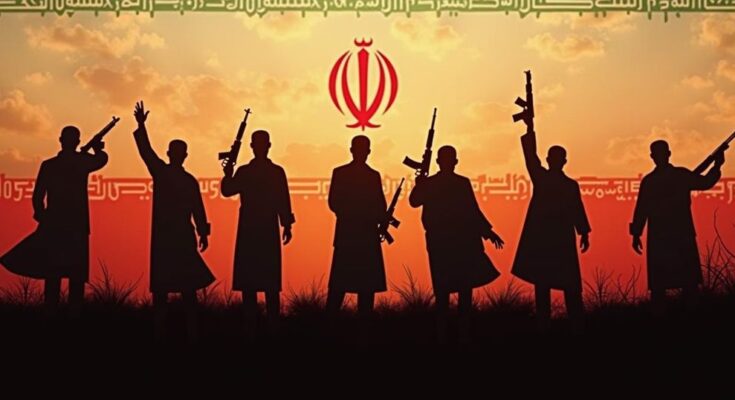The assassination of Hizbullah leader Hassan Nasrallah by Israeli forces triggered Iran’s military response, resulting in a missile strike upon Israel. This action reflects the internal struggle between Iranian reformists advocating for diplomatic engagement and hardliners seeking retaliation. The event underscores the precarious state of Iranian-Israeli relations as tensions reach new heights, raising concerns of further escalations in regional conflict.
The assassination of Hizbullah leader Hassan Nasrallah by Israeli forces has sparked a significant shift in Iran’s political and military strategy. Following this incident, Iranian officials convened to formulate a response, emphasizing the need for retaliation after a prolonged period of restraint. This decision indicates a departure from the previously adopted cautious stance of the Iranian government under reformist President Masoud Pezeshkian. Iran’s Supreme National Security Council convened on Monday, wherein military leaders ultimately prevailed over political moderates. This resulted in the launch of approximately 180 ballistic missiles towards Israel, further intensifying the longstanding conflict between the two nations. An Iranian official candidly stated, “Nasrallah’s assassination was the last straw and Iran has come to the conclusion the Israelis are not going to stop.” Ayatollah Ali Khamenei, Iran’s supreme leader, is believed to have taken considerable risks by backing Pezeshkian’s diplomatic overtures to Western nations, which have yet to yield the promised relief from economic sanctions. Notably, this violent retaliation comes after a series of Israeli attacks on Hizbullah, one of Iran’s key proxies, and reflects a growing impatience within Iran’s military ranks. Major General Mohammad Bagheri remarked on the prolonged period of restraint endured by Iran, suggesting that the military leadership now perceives a lack of viable options against escalating Israeli aggression. Furthermore, President Pezeshkian criticized the previous promises made by Western leaders, claiming they only emboldened Israel to commit further acts of violence. In comparison to prior retaliatory measures, this missile barrage was less telegraphed and posed a greater threat due to the rapid trajectory of the munitions involved. Despite Iran’s claims regarding the efficacy of its missile strike, Israeli forces reported that most projectiles were intercepted. The escalation of military hostilities has significantly influenced internal Iranian politics, emboldening hardline factions that previously felt marginalized by Pezeshkian’s reformist administration. Moving forward, the possibility of retaliatory acts remains contingent upon the actions of the Israeli government, reflecting the precarious balance within regional geopolitics.
The tensions between Iran and Israel have escalated dramatically following the unexpected assassination of Hizbullah leader Hassan Nasrallah. This event marked a critical turning point, stirring an urgent response from Iranian leaders, who have grappled with the dilemma of responding to perceived Israeli provocations while trying to navigate the complex political landscape following the election of reformist President Masoud Pezeshkian. The dynamics between moderate Iranian governance and hardline military leaders reflect broader geopolitical concerns, particularly as both nations contend with the repercussions of their respective military actions and relationships with Western powers.
The assassination of Hassan Nasrallah has led to an abrupt and aggressive shift in Iran’s military posture towards Israel, highlighting the internal conflicts within Iranian political circles between reformist diplomacy and hardline retaliation. The Iranian leadership now faces pressures that could significantly alter the trajectory of regional stability. As both nations navigate this fraught landscape, the potential for escalating conflict remains a significant concern for international observers.
Original Source: www.irishtimes.com




